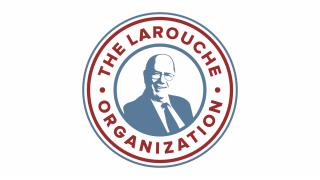May 6—Gen. Harald Kujat (ret.), inspector general of the German Bundeswehr in 2000-2002 and chairman of the NATO Military Committee, 2002-2005, is a signer of an appeal for the “primacy of reason” by the Carl-Friedrich-von-Weizsäcker Foundation. In an interview with Cicero monthly, Kujat explains: “We appeal to reason to stop the suffering of Ukrainians and the destruction of the country and to prevent the expansion of the war in Ukraine into a European war. The main actors in this war are not Ukraine and Russia, but Russia and the United States. The United States has changed the focus of its strategy: the center of gravity is no longer to protect and assist Ukraine in its defensive struggle against Russia’s attack, which is contrary to international law, but to weaken Russia as a geopolitical rival in the long term. U.S. Defense Secretary Lloyd Austin stated in late April during a visit to Kyiv that the United States ‘wants to see Russia weakened to the point where it can no longer do the things it did when it invaded Ukraine.’ This strategic rethinking—if it is such at all—makes a negotiated settlement even more urgent.”
Kujat still invests hope in German Chancellor Olaf Scholz, whom he believes has to take careful account of Germany’s security interests. “The German chancellor has the stature to persuade the U.S. government, together with President Macron, to reach a negotiated solution. Just as Helmut Schmidt, together with French President Giscard d’Estaing and British Prime Minister James Callaghan, convinced President Jimmy Carter in early January 1979 to respect European security interests in arms control of nuclear weapons systems. What the German government should refrain from in any case is any form of verbal armament! Nor should it tolerate it.”
“For more than a decade after the end of the Soviet Union and the dissolution of the Warsaw Pact, there was a period of political coordination and military cooperation between Russia and NATO,” Kujat says. “The creation of military transparency and political predictability have indeed contributed to a basic existential trust. This is not the place to explain how and why this mutual trust was squandered. In any case, it cannot be easily restored. But there is obviously an interest on the part of the United States and Russia to avoid the Ukraine war becoming the catalyst for a direct military confrontation between the two nuclear strategic superpowers. This should lead to the realization that this can be avoided first and foremost through negotiations.”
Kujat criticizes the militarization of the Western narrative: “I think it is absurd to speak of victory or defeat….Germany could play an important mediating role here,” he added. “It is right to support Ukraine in its defensive struggle,” but the aid “must not be an alibi for a lack of willingness to negotiate.”






